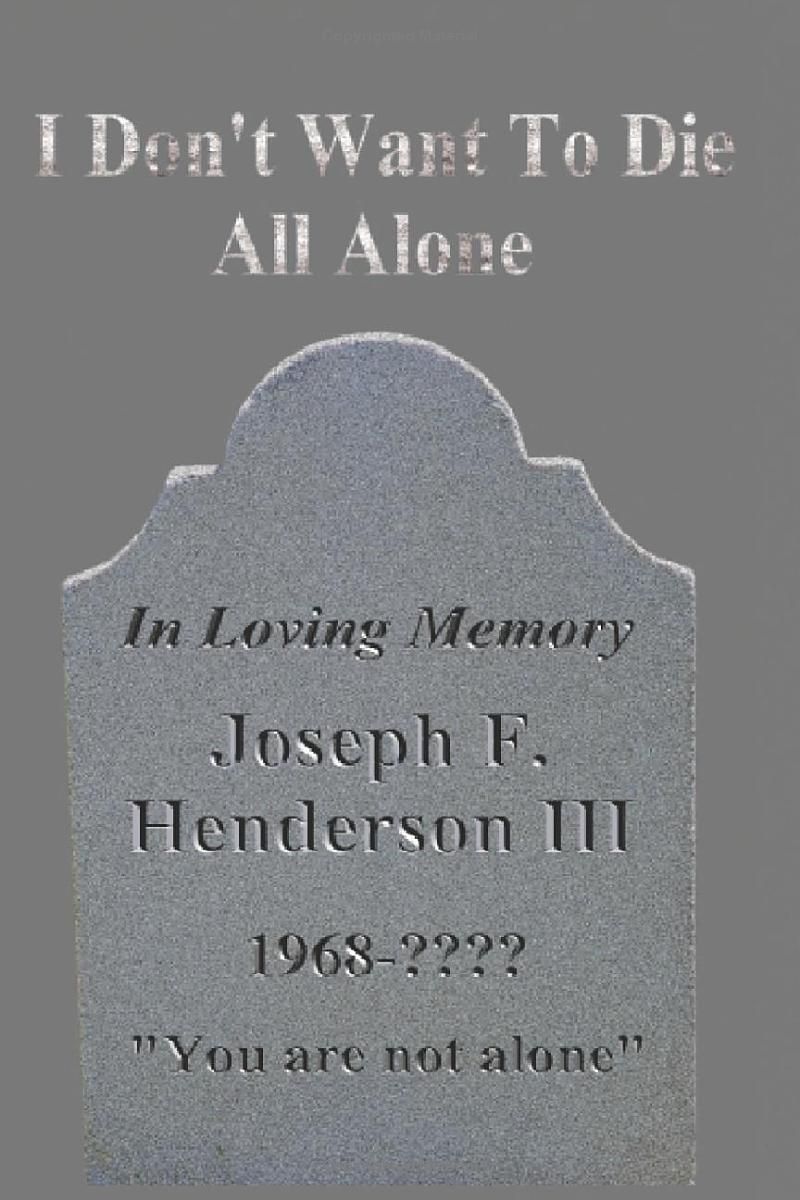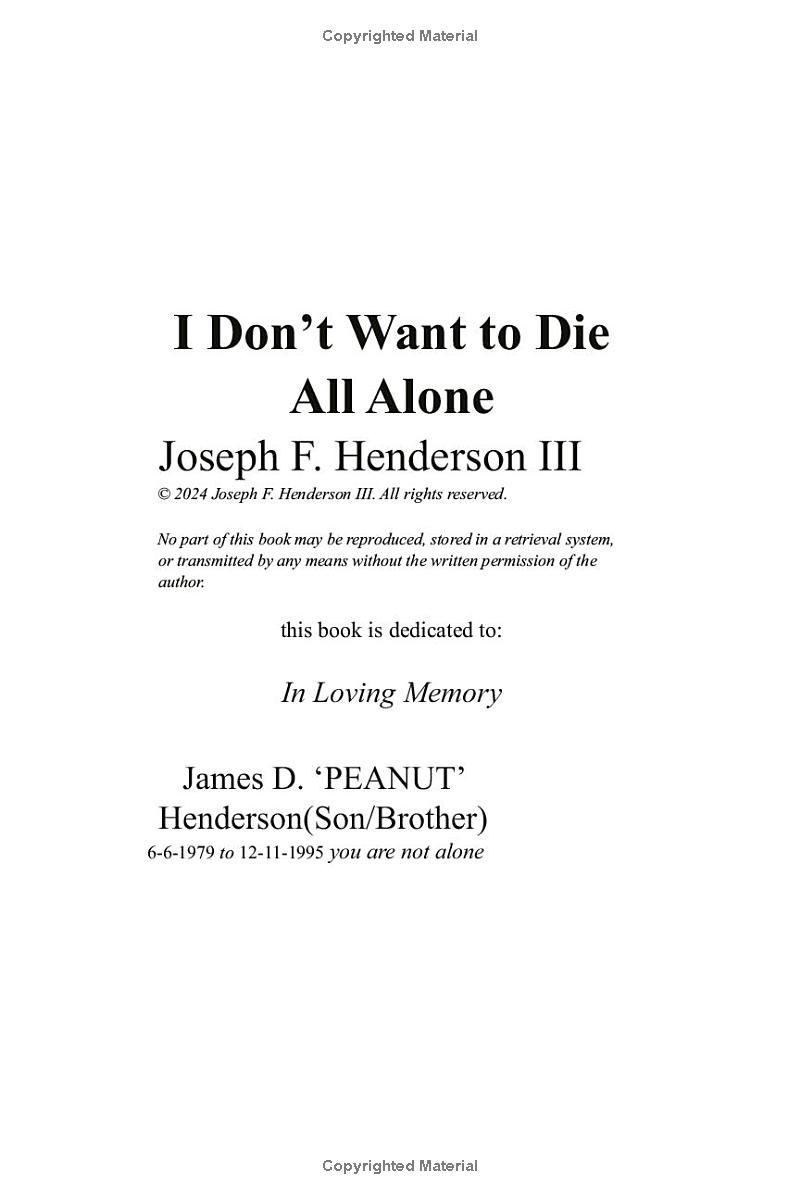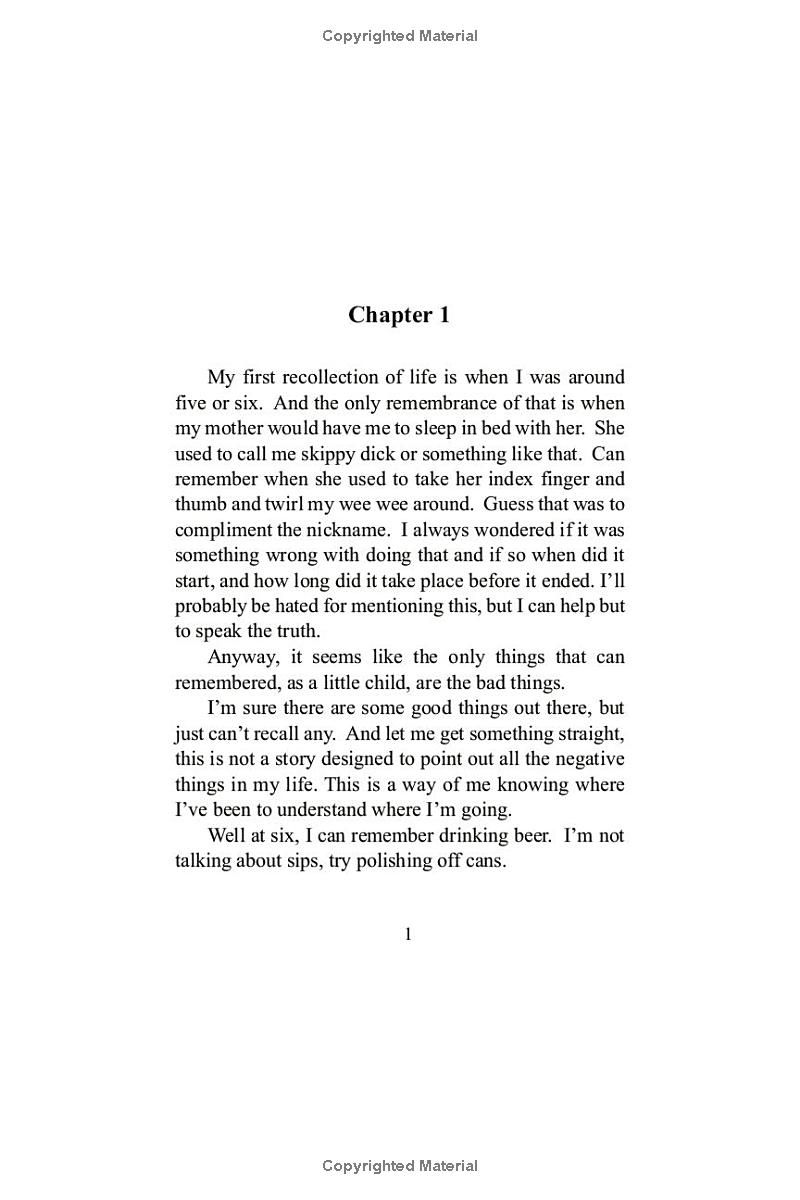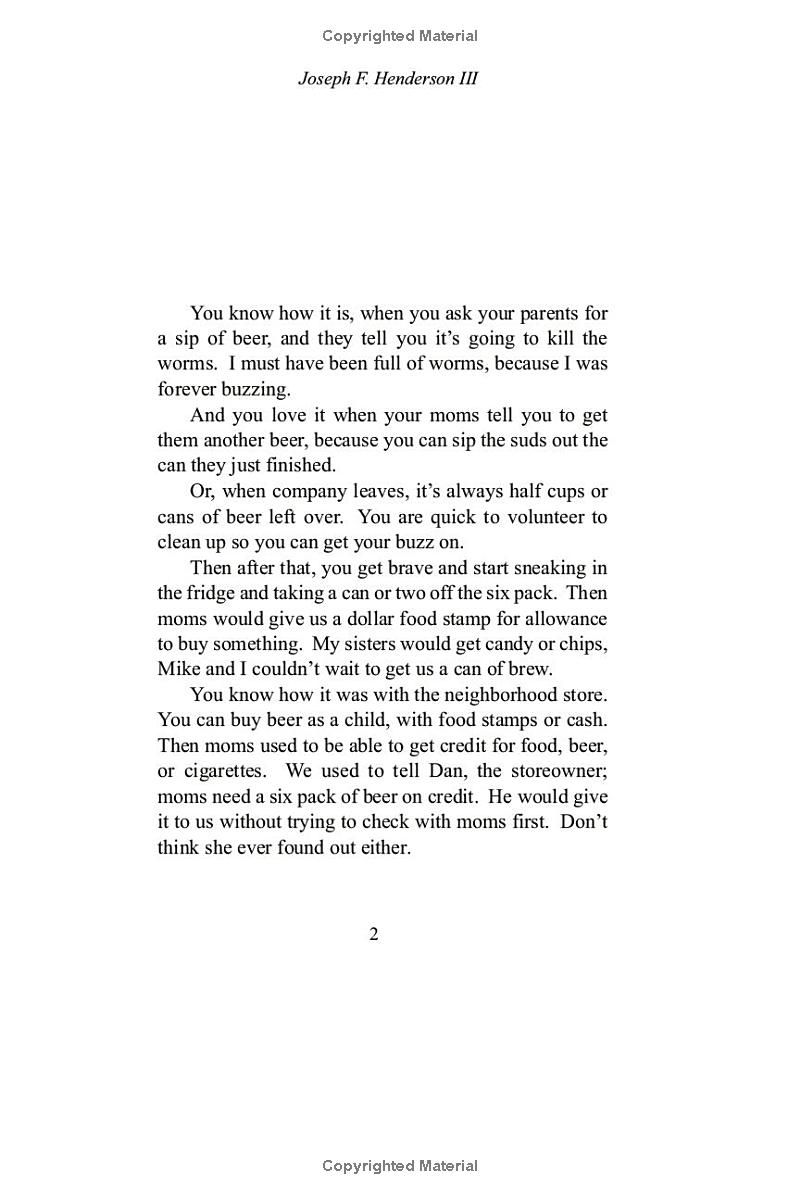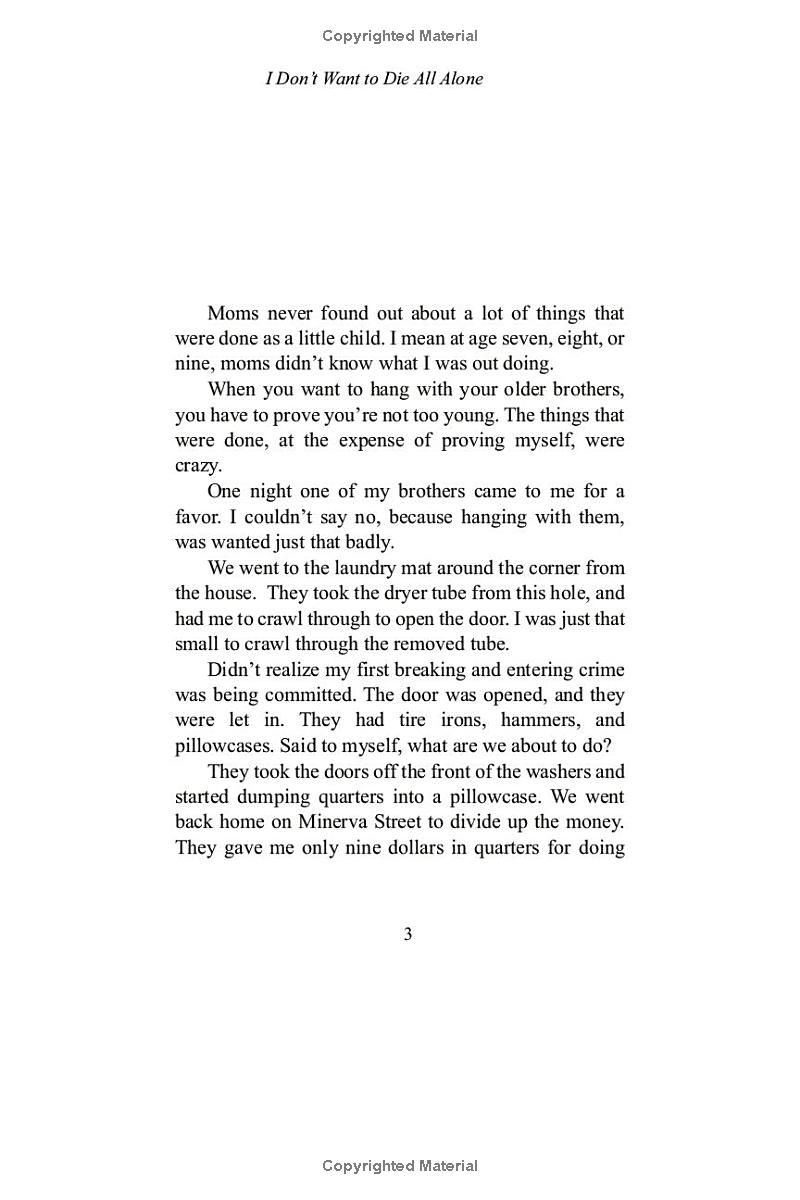In "I Don't Want to Die All Alone," Joseph F. Henderson III recounts a harrowing and unflinchingly honest memoir of his life. Raised in poverty and facing brutal abuse, he details a childhood spent navigating the unforgiving streets of Michigan, surviving on scraps and enduring unimaginable hardship. From dumpster diving for food to escaping shootings and witnessing the murder of his brother, Joe's story is a testament to resilience in the face of overwhelming adversity. This raw and emotional account explores themes of crime, addiction, and the lasting impact of trauma, culminating in a desperate plea for forgiveness and a poignant reflection on the solitary path he almost took. Prepare for a powerful and unforgettable journey into the heart of a life lived on the edge.

Review I Don't Want to Die All Alone
Wow, "I Don't Want to Die All Alone" is quite a ride! Joseph Henderson III's memoir is raw, unflinching, and honestly, at times, laugh-out-loud funny. It’s not the kind of humor you expect when reading about a childhood spent battling poverty, abuse, and the harsh realities of life on the streets. But Henderson's ability to find the absurdity in the midst of trauma is both striking and strangely comforting. He doesn't shy away from the darkness – the brutal beatings, the hunger, the constant threat of violence – but he presents it with a certain detached honesty that keeps the narrative from becoming overly sentimental or exploitative.
The descriptions of his childhood are vivid and visceral. You can practically feel the biting Michigan cold, the gnawing hunger, the fear that permeates every interaction. He paints a picture of a life so far removed from the comfortable norms of many readers that it's almost unbelievable, and yet, his story rings true. He doesn't sugarcoat anything; the details are gritty and unflinching, a testament to his courage in sharing such a vulnerable and painful part of his life.
While the book is undoubtedly a difficult read at times, it’s also surprisingly uplifting. Despite the hardships, there's a resilient spirit that shines through. Henderson's journey isn't just about survival; it's about self-discovery and ultimately, about finding a path towards redemption. His reflections on his actions, his attempts to reconcile with his past, and his yearning for connection are deeply moving. The raw honesty with which he recounts his mistakes and his desperate desire to avoid dying alone is incredibly powerful. It made me think about the weight of our choices and how our pasts can shape us, but not necessarily define us.
There are moments where the narrative feels a little self-centered, as some reviews have pointed out – a tendency to present himself as the central figure in every situation. But I think this is understandable, given the context. His perspective is naturally skewed by his experiences, and this self-centeredness, in a way, adds to the authenticity of his voice. He's telling his story, from his perspective, and it's impossible to divorce that from the narrative itself. It adds to the raw, unfiltered nature of the book.
Ultimately, "I Don't Want to Die All Alone" is more than just a memoir; it's a testament to the human spirit’s capacity for resilience and the enduring power of hope. It's a reminder that even in the darkest of circumstances, there's always the possibility of finding a way through, of finding forgiveness, and of ultimately finding connection. It's a book that stays with you long after you've finished reading, prompting reflection and a renewed appreciation for the complexities of the human experience. While it’s not an easy read, I highly recommend it for its raw honesty and unflinching look at a life lived on the edge.
Information
- Dimensions: 6 x 1.2 x 9 inches
- Language: English
- Print length: 532
- Publication date: 2024
Preview Book
